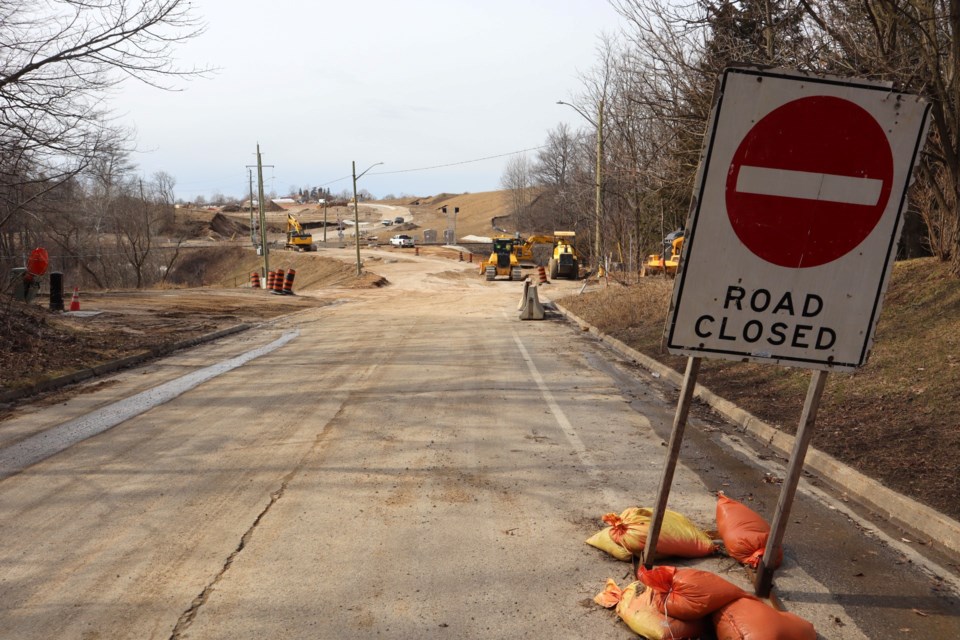Rising construction costs are pushing several city road projects over budget as the season kicks into high gear.
A report coming to this week's city council meeting says an "exceptionally high" construction price index of 15.3 per cent on a year-over-year basis is reflected in rising budgets of several projects already underway.
"It is anticipated that as inflation takes hold there may be increased number of projects that come in over budget," warns the report from the city's chief financial officer Sheryl Ayres.
"Additionally, forecasting has become more challenging due to the significant volatility seen in the markets, leading to uncertainty in which procurements will result in budget shortfalls."
Ayres writes that in the event of budget shortfalls, staff in various divisions may identify lower priority projects to defer in order to free up funding for the highest priority projects.
If priority projects need additional funding, it will trigger the need for council approval.
Ayres says staff will work to prioritize reports to council that detail the cost of successful bids "to ensure that prices obtained through the procurement process are honoured and the work proceeds in a timely manner."
"It should be noted that deferring projects only pushes the funding challenges further into the future, namely the 2023 Capital Budget. The City’s prioritization model will continue to be used as part of the 2023 Capital Budget process to ensure priority work proceeds within constrained funding limits.
Projects already well north of their projected budgets include the $1.4 million South Street reconstruction at 12 per cent over budget, replacement of a culvert on Old Mill Road, which is 18 per cent over budget, playground replacement at Gail Street, Northview Heights and Lincoln Park Playground Replacements, 10.6 per cent over budget, the $1.9 million budget to reconstruct Westminster Drive North and Westminster Drive South is 15.8 per cent over budget, and the renovation of the Parklawn Chapel at 1.9 per cent over budget.
So far only two projects have come in under budget; the two-year $3.75 million reconstruction of First Avenue and Grand Avenue at 2.6 per cent under budget, and the $2.5 million reconstruction of Henderson, Bella and Kribs streets at just half a per cent under budget.
In addition to the rising costs, staff are having difficulty finding suppliers, contractors and consultants with sufficient available capacity to bid on work.
"This is mainly the result of high economic activity resulting in excess demand for goods and services in the marketplace," Ayres writes.
Pushing projects into 2023 may not be the best option either since it "only pushes the funding challenges further into the future."
The 2023 capital budget is already strained since cost estimates made for next year in the 10-year-capital plan were based on typical inflation assumptions of two to three per cent.
The 10-year capital plan as part of the 2022 Budget and Business Plan included $575 million in funded capital projects. It also included 36 unfunded projects totalling $38 million in funding needs.
"As staff roll forward these forecasted projects and prepare the 2023 Draft Budget, the projects’ estimated costs will need to be inflated based on the construction price index at the time of preparing the draft budget. This will drastically drive cost increases in the capital budget," Ayres writes.
Revenues aimed at creating a “balanced budget” will be constrained based on available tax or user rate revenues and may result in an increase to the number of unfunded projects over the ten years.
The city says it will use a prioritization model to determine the priority of each project going forward to ensure priority work proceeds within constrained funding limits.
Although the city anticipates Bank of Canada interest rate increases will moderate spending, gradually reduce demand and help to lower inflation over time, it is not predicted to result in lower costs for materials and labour.
"Costs have increased to a new level and are expected to stay at that level or continue to increase," writes Ayres.



